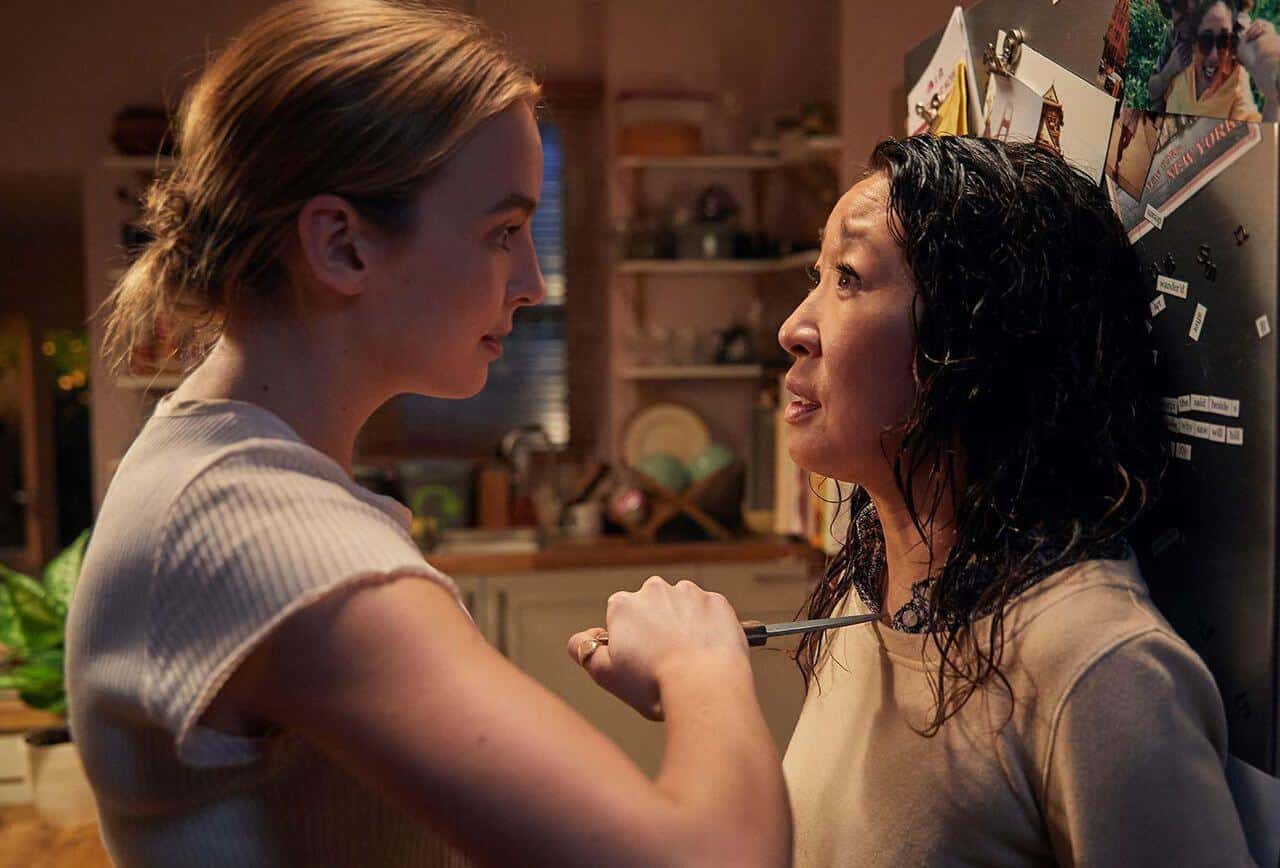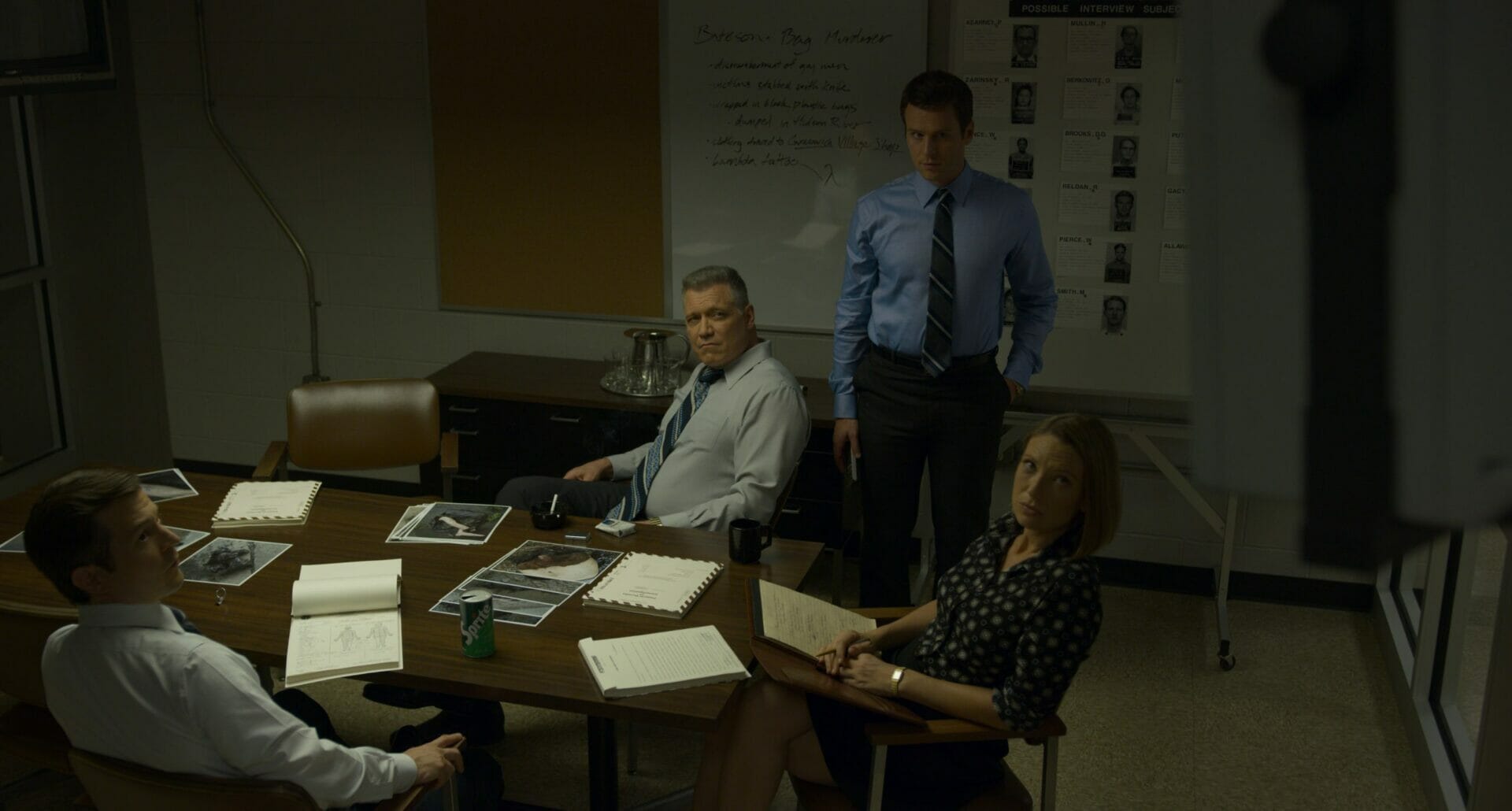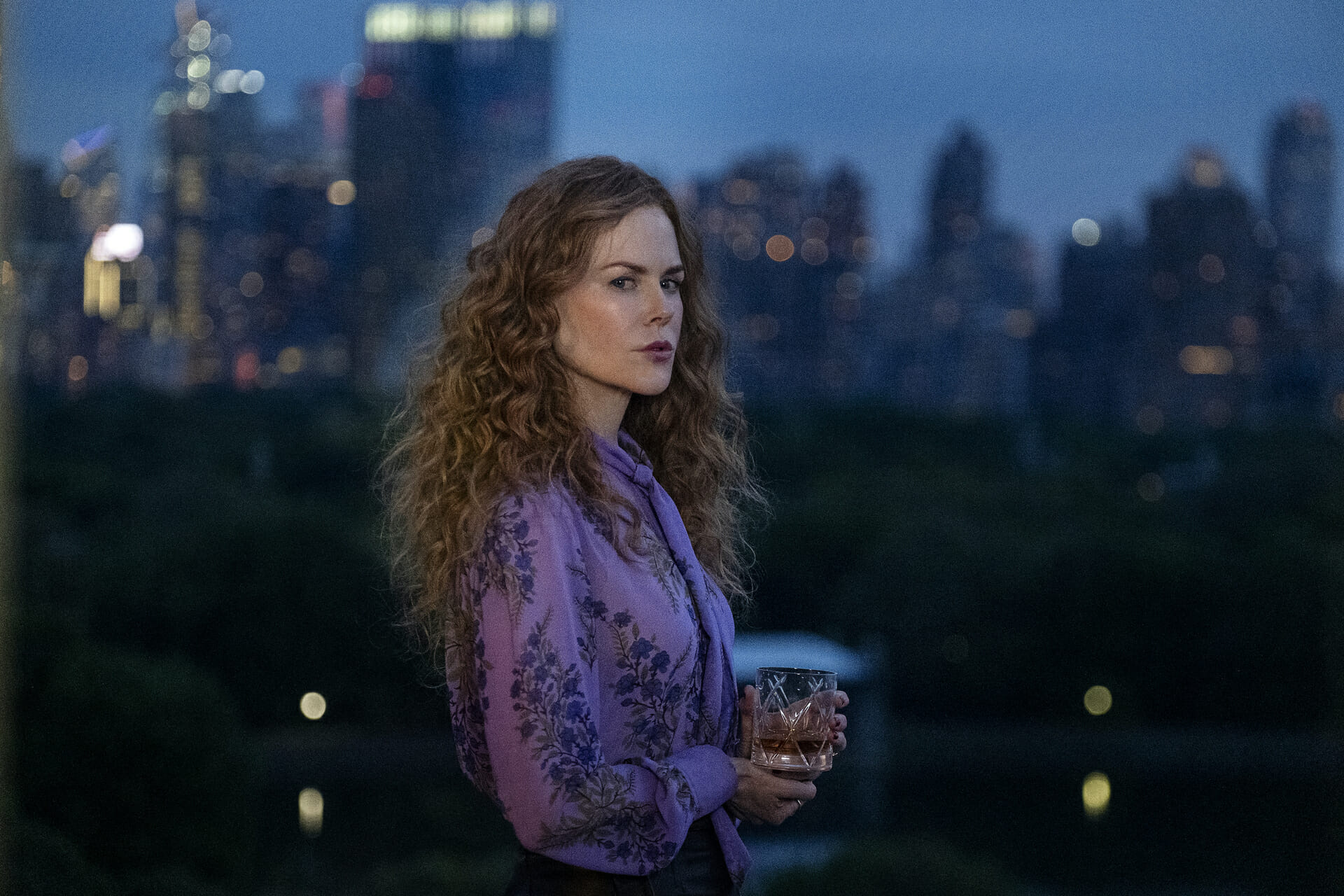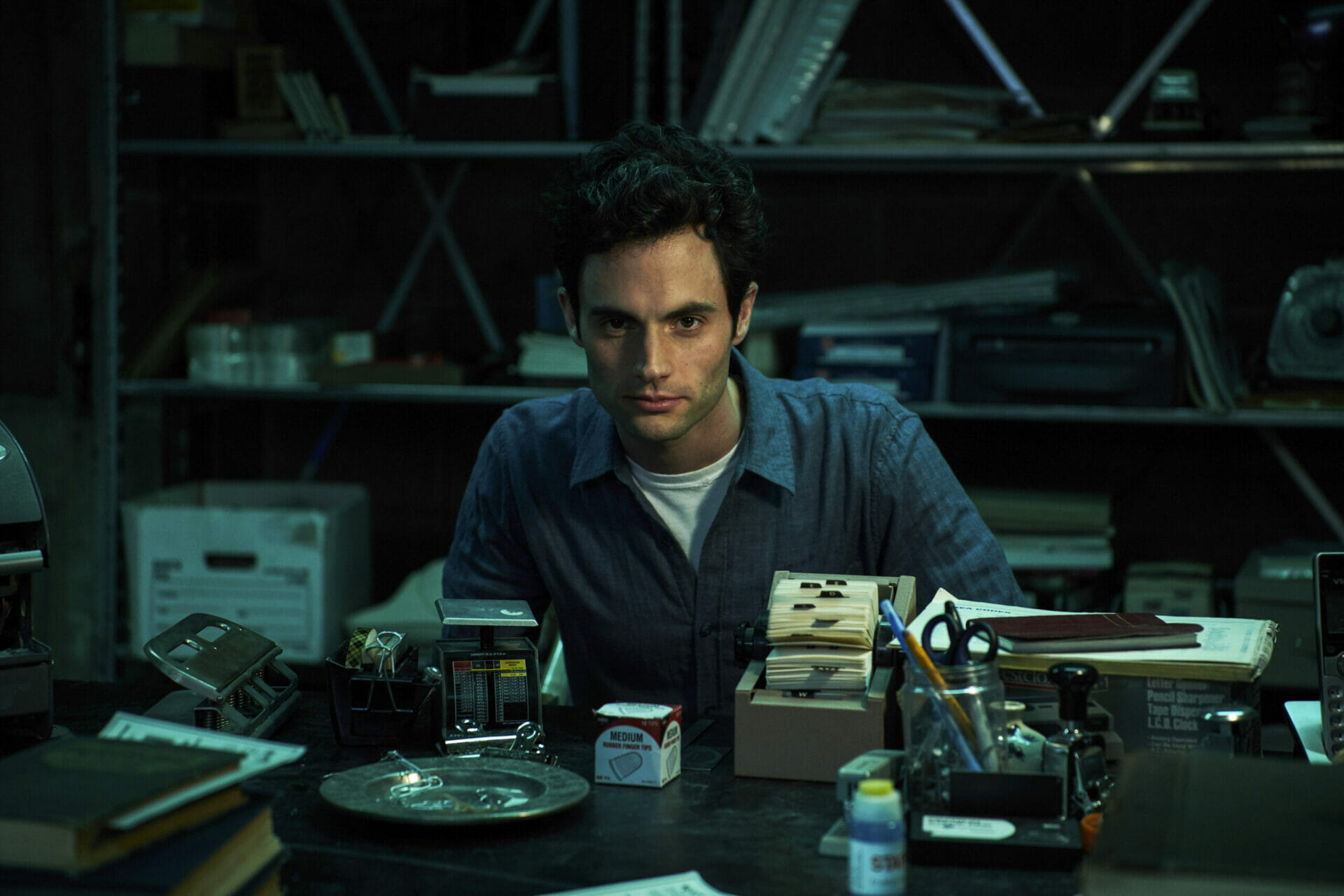
You | A Satire on Toxic Masculinity
Seasons
Runtime
Bells chiming. A woman walks into a bookstore. “Well, hello there. Who are you?” wonders the seductive voice of a man hidden in the shade among the bookshelves, as he spies on the woman. That is how the bookstore manager Joe Goldberg (Penn Badgley), a classic clean-faced guy who would make a great first impression with your family, meets the aspiring writer Guinevere Beck (Elizabeth Lail) for the first time. And that is exactly how most romantic love stories begin. The camera lingers a few moments on their close-ups. Her gaze meets his. There goes the magic spark. But be warned. We are not in a romance. Instead, what we are about to witness is a toxic, dirty, and twisted story. And Love is just a character’s name (the one played by Victoria Pedretti).
From the very first minute, You – the TV show developed by Sera Gamble (Supernatural) and Greg Berlanti (Dawson’s Creek, Chilling Adventures of Sabrina), based on the best-selling novels by Caroline Kepnes – warns the viewer to be vigilant and disrupt everything they have watched so far. No doubt, You is a fine example of television writing and character development that succeeds in delivering sharp humor. It is a drama with some elements of psychological thriller, crime, black comedy, but also romance. A cross-genre narrative that shakes up and tears apart the popular imagery of romantic love, romantic hero, and more with biting satire. And it does so, first and foremost, by letting the viewer into the compulsive mind of a stalker.
- Inside the Stalker’s Mind
- Exposing Toxic Masculinity and Normalized Behaviors
- Romanticizing a Stalker
- Fifty Shades of You
Inside the Stalker’s Mind
If he loves you, that’s the most dangerous thing.
Candace Stone (Ambyr Childers)
New York City, present-day. You revolves around the life of Joe (Penn Badgley), a quiet, introverted, and charming guy who works in a bookstore. Yet, behind the “nice guy” facade, Joe hides a very disturbing nature. Indeed, he turns out to be a narcissist with an antisocial personality disorder and a dangerous stalker. After meeting Guinevere (Elizabeth Lail), Joe develops a toxic and violent obsession with her. This triggers a dark spiral of manipulation and crime in an attempt to protect their relationship. In season two, Joe moves to Los Angeles and tries to start a new life with Love (Victoria Pedretti). Season three follows Joe and Love as they move to the fictitious suburb of Madre Linda, California. Time after time, Joe struggles to escape his past and can’t avoid falling back into old patterns.
To some extent, You can be compared to other TV shows that delve into the minds of disturbed people or serial killers such as Dexter (2006); The Fall (2013); Bates Motel (2013); Mindhunter (2017); and Dirty John (2018). But also to other narratives that investigate a type of obsessive love-hate relationship such as the one portrayed in Killing Eve (2018).

Exposing Toxic Masculinity and Normalized Behaviors
What is new about You is not so much that it tells the mental dynamics and manipulative behaviors of a stalker by letting viewers inside his head. Rather, the turning point is how it overturns preconceived beliefs about violent men.
The trope of casting the “nice guy” as the villain is increasingly relevant, in particular, in a post-#MeToo world where the cultural discourse about male violence grapples with the fact that perpetrators are usually not mythical monsters or social outcasts, but everyday “respectable” men who trade on their status to abuse women.
“Netflix’s You and how ‘nice guys’ became the real villains”, BBC
You exploits stereotypes and normalized traits in Western society in order to subvert them. In doing so, it creates a dialogue with the viewer about the present real world. A major accomplishment is how it has flipped the cliché of the “nice guy” – often white, well-educated, and middle-class – by making viewers question what most narratives are proposing to them. This is because the viewer is usually prone to use biases; especially when witnessing the hunting and vicious acts of a man who presents himself as a decent “nice guy”. So, through this trope, You effectively exposes to the viewers how they are routinely “flooded” with narratives that stem from standardized cultural codes, enacting toxic masculinity and behaviors.
[…] These toxic “nice guy” narratives are exposing the kind of insidious paradigms of “acceptable” masculinity long implanted in our culture by film and TV. What’s clever about You’s knowing screenplay is that it invites the audience to see how Joe’s self-justifying sociopathy sits at the extreme end of a behavioural spectrum idealised by pop culture as romantic, masculine and heroic.
“Netflix’s You and how ‘nice guys’ became the real villains”, BBC
Romanticizing a Stalker
Therefore, You sets up a critical subtext to the long-running legacy of romantic comedies in which the hero triumphs by conquering his soulmate thanks to his willpower. And it does so by carefully balancing each ingredient. Joe is presented as the typical romantic hero. Indeed, You allows Joe to self-present with his charming voice-over. But, with fine satire, the show gradually starts to reveal the skeletons in the closet to turn him into an antihero. His behaviors – which the viewer is led to root for and justify each time – are deeply wrong and unnatural. Therefore, by overturning stereotypes and exposing Joe’s male gaze through its female gaze, You points out behavior that is usually inclined to be overlooked or considered acceptable.
I think we are programmed that way. Myself included. With all the rom-coms and fairytales we’ve read, we’re programmed to root for the hero at any cost, unfortunately. And so, my hope is that these women notice that inside themselves; and ask themselves, ‘oh gosh, why do I love this terrible man?’ I hope they recognize it as an unconscious bias (that’s inside most of us), and actively work against it.
Elizabeth Lail in an interview with Image
Confirming this thread, it is troubling how there are still those who root for Joe and romanticize his actions. Indeed, more and more fans have developed an obsession with the character of Joe, even fetishizing him on social media. Which led Penn Badgley to take action by expressing his concern about it on Twitter.
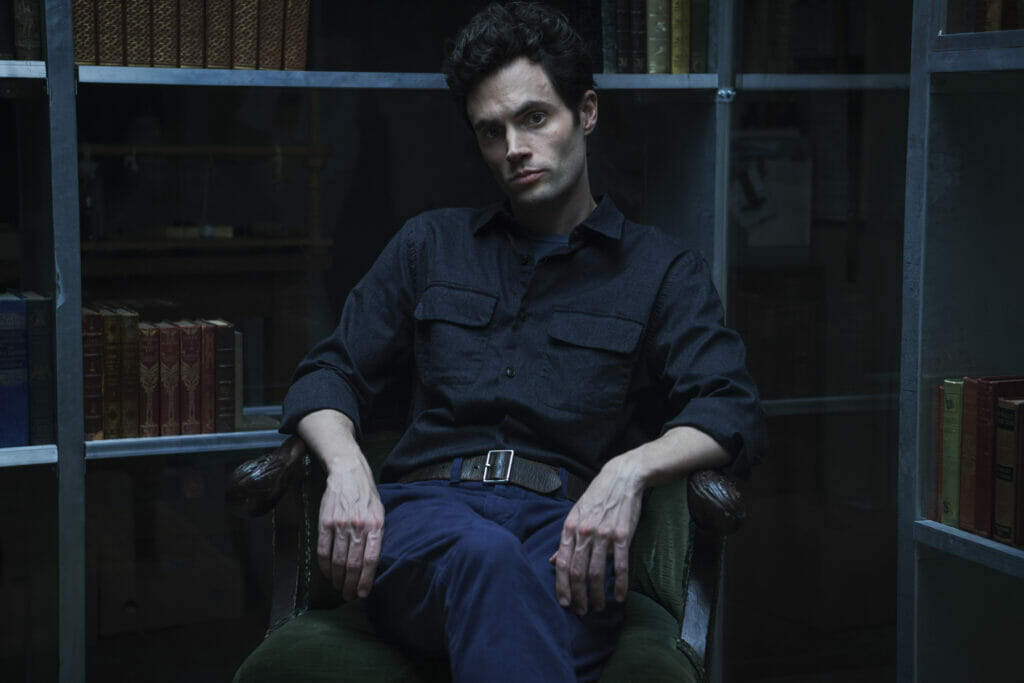
Fifty Shades of You
After five seasons, Joe is still wooing the viewer and desperately demanding to understand his sick way of loving. Because he loves the women – or in his case, it would be better to say the “objects” – he stalks. And even the show itself falls into its trap, trying, in season three, to use flashbacks of Joe’s past to make the viewers justify him. Is this a deliberate ploy? Who knows. After all, that is the appeal of You. Playing over and over with the viewer, through its subtle satire made up of endless overturning.
Moving from romantic love and a critique of wealthy people’s respectability; through a commentary on marriage and parenting’s dark side; and even ending up with an anti-vax storyline, You explores so many themes and proves to be a show that both draws from and speaks to current society. More than that, it has quickly become a hit show thanks to its spotlight on social issues and standards that need to change.
Tag
Buy a ☕ for Hypercritic







